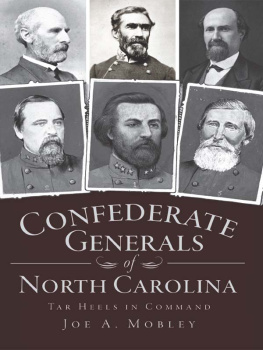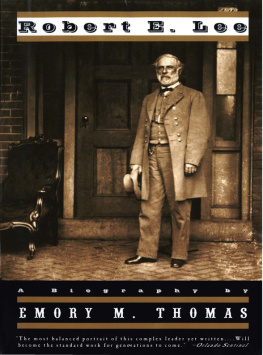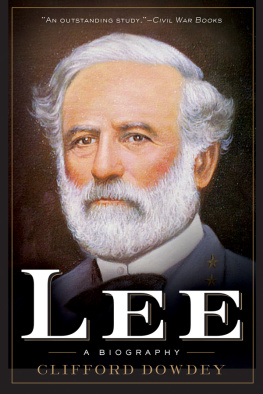Speeches of the Hon. Jefferson Davis, of Mississippi,
Delivered During the Summer of 1858:
On Fourth of July, 1858, at Sea.
At Serenade, at Portland, Maine.
At Portland Convention, Maine.
At Belfast Encampment, Maine.
At Belfast Banquet, Maine.
At Portland Meeting, Maine.
At Fair at Augusta, Maine.
At Faneuil Hall, Boston.
At New York Meeting.
Before Mississippi Legislature.
etc. etc.
Baltimore... Printed By John Murphy & Co.
Marble Building,
182 Baltimore Street. 1859.
To the People of Mississippi.
I have been induced by the persistent misrepresentation of popular Addresses made by me at the North and the South during the year 1858, to collect them, and with extracts from speeches made by me in the Senate in 1850, to present the whole in this connected form; to the end that the case may be fairly before those by whose judgment I am willing to stand or fall.
Jefferson Davis.
Extracts From Speeches in U.S. Senate.
In the Senate of the United States, May 8, 1850, in presenting the Resolutions of the Legislature of Mississippi:
It is my opinion that justice will not be done to the South, unless from other promptings than are about us here--that we shall have no substantial consideration offered to us for the surrender of an equal claim to California. No security against future harassment by Congress will probably be given. The rain-bow which some have seen, I fear was set before the termination of the storm. If this be so, those who have been first to hope, to relax their energies, to trust in compromise promises, will often be the first to sound the alarm when danger again approaches. Therefore I say, if a reckless and self-sustaining majority shall trample upon her rights, if the Constitutional equality of the States is to be overthrown by force, private and political rights to be borne down by force of numbers, then, sir, when that victory over Constitutional rights is achieved, the shout of triumph which announces it, before it is half uttered, will be checked by the united, the determined action of the South, and every breeze will bring to the marauding destroyers of those rights, the warning: woe, woe to the riders who trample them down! I submit the report and resolutions, and ask that they may be read and printed for the use of the Senate.--(_Cong. Globe_, p. 943-4.)
In the Senate of the United States, June 27, 1850, on the Compromise Bill:
If I have a superstition, sir, which governs my mind and holds it captive, it is a superstitious reverence for the Union. If one can inherit a sentiment, I may be said to have inherited this from my revolutionary father. And if education can develop a sentiment in the heart and mind of man, surely mine has been such as would most develop feelings of attachment for the Union. But, sir, I have an allegiance to the State which I represent here. I have an allegiance to those who have entrusted their interests to me, which every consideration of faith and of duty, which every feeling of honor, tells me is above all other political considerations. I trust I shall never find my allegiance there and here in conflict. God forbid that the day should ever come when to be true to my constituents is to be hostile to the Union. If, sir, we have reached that hour in the progress of our institutions, it is past the age to which the Union should have lived. If we have got to the point when it is treason to the United States to protect the rights and interests of our constituents, I ask why should they longer be represented here? why longer remain a part of the Union? If there is a dominant party in this Union which can deny to us equality, and the rights we derive through the Constitution; if we are no longer the freemen our fathers left us; if we are to be crushed by the power of an unrestrained majority, this is not the Union for which the blood of the Revolution was shed; this is not the Union I was taught from my cradle to revere; this is not the Union in the service of which a large portion of my life has been passed; this is not the Union for which our fathers pledged their property, their lives, and sacred honor. No, sir, this would be a central Government, raised on the destruction of all the principles of the Constitution, and the first, the highest obligation of every man who has sworn to support that Constitution would be resistance to such usurpation. This is my position.
My colleague has truly represented the people of Mississippi as ardently attached to the Union. I think he has not gone beyond the truth when he has placed Mississippi one of the first, if not the first, of the States of the Confederation in attachment to it. But, sir, even that deep attachment and habitual reverence for the Union, common to us all--even that, it may become necessary to try by the touchstone of reason. It is not impossible that they should unfurl the flag of disunion. It is not impossible that violations of the Constitution and of their rights, should drive them to that dread extremity. I feel well assured that they will never reach it until it has been twice and three times justified. If, when thus fully warranted, they want a standard bearer, in default of a better, I am at their command.--(_Cong. Globe_, p. 995-6)
On Fourth of July, 1858, At Sea.
[From the Boston Post.]
The fine ship _Joseph Whitney_, from Baltimore, Captain S. Howes, was making for this port on the day of the celebration of the nation's birth, and among an unusually brilliant array of passengers from different parts of the country, was the distinguished Senator, Jefferson Davis, of Mississippi. The patriotic suggestion of the captain, to celebrate the day in a manner befitting the great anniversary, met with a hearty response from the company, among whom were zealous republicans, democrats and Americans. A committee was appointed to invite the Senator to make an address, and he consented.
First, the Declaration of Independence was read by Sebastian F. Streeter, Esq., of Baltimore, when Senator Davis made an address of singular felicity of diction and impassioned eloquence, and of such a character as to command the admiration of those who listened to it. He commenced by happy allusions to the array of beauty and intelligence that stood before him from all parts of our common country; he then passed in review the condition of the feeble and separate colonies of 1776, and contrasted with it the country now--the only proper republic on earth, as it stood before the world in its wonderful progress in art, and agriculture, and commerce, and all the elements that constitute a great nation. When thus sailing on the Atlantic, looking to the coast of the United States, he was reminded of those bold refugees from the British and French oppression who crosses these water to found a home in what was then a wilderness. The memory, too, arose of the many sorrowing hearts and oppressed spirits since born over these waves to that refuge from political oppression which our fathers founded as the home of liberty and the asylum of mankind. Her terrtiory {sic}, which now stretches from ocean to ocean, contains a vast interior yet unpeopled; and, with a destiny of still further and continued expansion of area, why should the gate of the temple be now shut upon sorrowing mankind? Rather let it be that the gate should be forever open, and an emblematic flag, hereafter as heretofore, wave a welcome to all to come to the modern Abdella--fugitives from political oppression.











